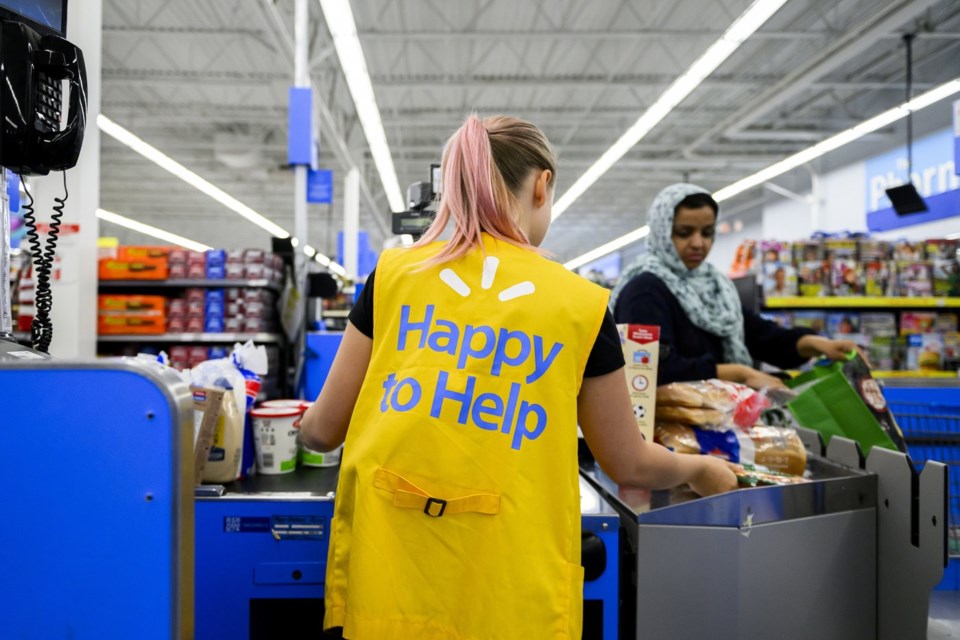A temporary pause on charging the federal sales tax on many items has retailers excited, even though they say preparing for the relief will mean a lot of extra work in a short period of time.
Associations representing thousands of the country's retailers and restaurants said Thursday that omitting GST charges on toys, groceries, books and more for two months will be a quick process for some, but time consuming for others.
"Every retailer is going to be different because everyone's system is different, but it can range from being a simple fix to being quite laborious," said Matt Poirier, vice-president of federal government relations for the Retail Council of Canada.
Businesses will likely begin by trawling through their lists of products to determine which ones will need to have the tax removed between Dec. 14 and Feb. 15.
Ottawa's list of qualifying goods is lengthy and wide ranging as it includes diapers and kids clothes, but also items such as newspapers, plush dolls, English muffins and bottled water.
Some stores may only sell a few of the qualifying items while others may have an expansive inventory that spans several categories.
Once they've identified what qualifies, Poirier said retailers will have to set up their point-of-sale software to cope with the changes.
“While this relief will benefit consumers, the administrative burden will fall on suppliers and retailers who must adjust their payment systems accordingly,” John Oakey, vice-president of taxation at Chartered Professional Accountants of Canada, said in a statement.
Some businesses, especially small- and medium-sized ones, may not have the appropriate infrastructure in place to make the changes quickly, he said.
While Lightspeed Commerce Inc., a Montreal-based firm that sells point-of-sale software, said it will be up to merchants to make changes to their systems, it maintained the work will be "relatively straightforward" because the company's software already allows shops to adjust tax rates on individual or grouped items.
A spokesperson for Moneris said the company supports relief to help 91原创s with the cost of living, but it fears the short time frame for implementing the tax break could place "undue stress" on businesses and "it’s unclear if this initiative considered the work required by businesses to support it."
Due to the complexity of some businesses' point-of-sale solutions, "it will require more effort on their part to implement," communications director Darren Leroux said in an emailed statement, adding Moneris will communicate with its customers and its partners as they make the necessary adjustments to their systems.
Dan Kelly, president of the 91原创 Federation of Independent Business, agreed such tasks can be "reasonably straightforward" for restaurants and food service businesses, but said it "may add confusion and complexity for general retailers."
The timing may also be an issue. Businesses will have to be ready to flip the switch in roughly three weeks — and then prepare to reverse the changes two months later.
"It's short notice and it's not a lot of lead time," Poirier said. "It will be a headache for some, but the upside will be more sales in the long run."
The arrival of the GST cuts will come weeks, if not months, after many people have begun holiday shopping. By then, Black Friday sales will have dissipated and some will have wrapped up their spending on gifts.
CFIB's Kelly has already heard from one retailer of children's products who fears missing so much of the busy shopping season will mean the cuts negatively affect sales.
"Consumers will hold off on purchases between now and Dec 14th," explained an email from the unnamed business that Kelly shared on X, formerly known as Twitter. "They will return purchases and cancel orders in order to re-purchase and save the GST."
Others see the latter half of the duration of the cuts as being the real benefit for business. The cuts span January and all the way through to Valentine's Day, a period when retailers and restaurants typically see business slow down.
"There's less people going to restaurants at that point, so the timing is actually very good," said Max Roy, Restaurants Canada's vice-president of federal and Quebec affairs.
His organization estimated the move will result in a five per cent increase in sales, which he felt made the work restaurants will have to do worth it.
Several businesses he talked to said the changes would be "very doable," but Roy acknowledged "the size of the restaurant makes a big difference here."
"For bigger chains, it means that their tech team will have to look at all items and go one by one and fix this for all restaurants," he said.
"For smaller members, this means that they will probably have to go and make the change and it should take them a couple of hours to make it happen."
This report by The 91原创 Press was first published Nov. 21, 2024.
Companies in this story: (TSX:LSPD)
Tara Deschamps, The 91原创 Press



